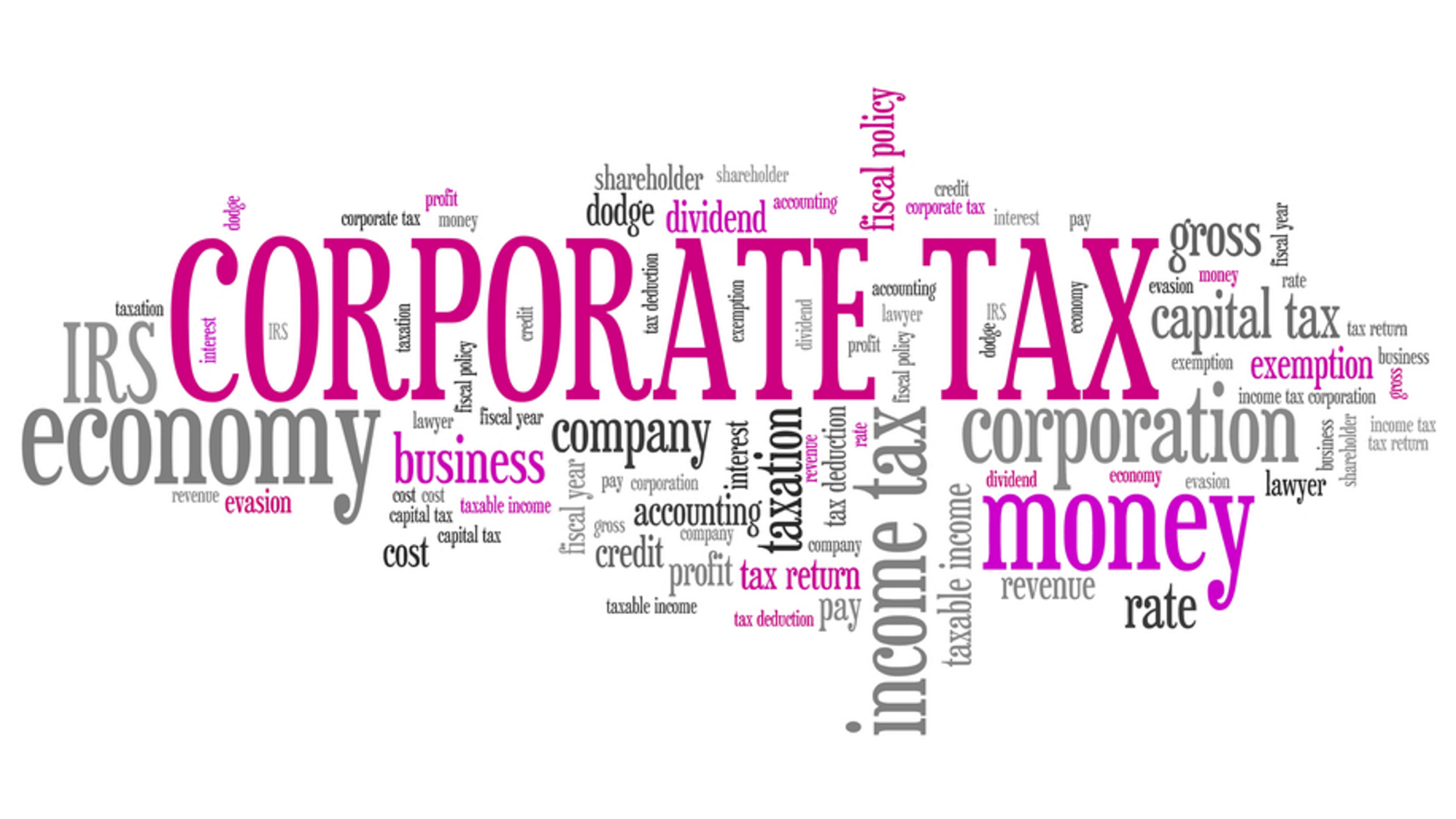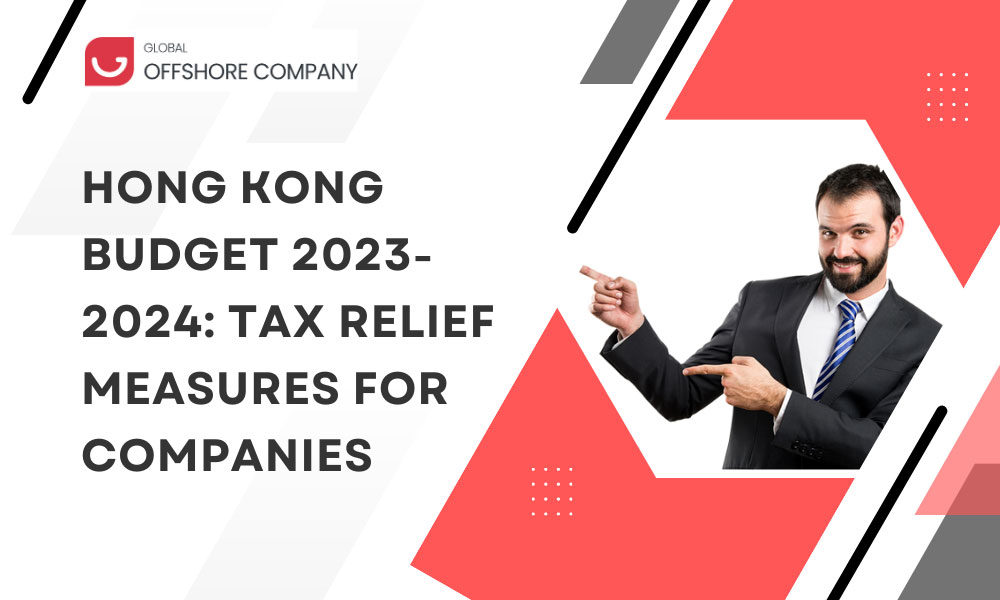Comprehensive Guide to Hong Kong Private Limited Company Taxation 2023 Update
Welcome to the Comprehensive Guide to Hong Kong Private Limited Company Taxation! In this guide, we will provide you with detailed insights into Hong Kong's taxation system for private limited companies, including updated figures and laws as of August 2023. Whether you're a startup, SME, or a multinational corporation, understanding Hong Kong's tax laws and obligations is essential for effective financial planning and compliance.
Detailed Insights into Hong Kong's Corporate Tax Rate
As of 2023, Hong Kong maintains its reputation for having a competitive and business-friendly corporate tax regime. The corporate tax rate remains at a flat 16.5%. However, it's important to note that Hong Kong adopts a territorial taxation system. This means that only profits sourced from within Hong Kong are subject to this tax rate. Profits earned from overseas activities are generally exempt from Hong Kong taxation. This system encourages international businesses to set up operations in Hong Kong without facing heavy tax burdens on their global earnings.
1. Territorial Corporate Tax System
Hong Kong employs a territorial taxation system, wherein only profits sourced from within Hong Kong are subject to taxation. This system stands as a cornerstone of the city's tax structure. Overseas profits, dividends, and capital gains are generally exempt from taxation, providing businesses with a competitive edge in international markets. As a result, many global enterprises choose Hong Kong as a base for their Asia-Pacific operations.
2. Flat Corporate Tax Rate
Hong Kong offers corporations two distinct options for Profit Tax Rates: the Single-Tier Corporate Tax System and the Two-Tier Profits Tax Regime. Let's explore these in detail:
Single-Tier Corporate Tax System
Under this system, corporations are taxed at a flat rate of 16.5% on their assessable profits. Unincorporated businesses, on the other hand, are subject to a tax rate of 15%. This straightforward tax framework has been a hallmark of Hong Kong's business-friendly environment, contributing to its global appeal for investment and commerce.
Two-Tier Profits Tax Regime
Effective from the Year of Assessment 2018/19, Hong Kong introduced the Two-Tier Profits Tax Regime to alleviate the tax burden on small and medium-sized enterprises (SMEs). This regime applies to both corporations and unincorporated businesses. Here's how it works:
- For Corporations:
- The first HK$2 million of profits will be taxed at one-half of the current tax rate, which is 8.25%.
- Any profits beyond HK$2 million will continue to be taxed at the existing 16.5% tax rate.
- For Unincorporated Businesses:
- Similar to corporations, the first HK$2 million of profits will be taxed at one-half of the current tax rate, which is 7.5%.
- Any profits exceeding HK$2 million will be taxed at the regular 15% tax rate.
It's important to note that within a group of "connected entities," only one "entity" can enjoy the benefits of the two-tier rates. This necessitates identification and election within the group to determine which entity will benefit from the reduced tax rates.
Tax Rates in Action:
For a clearer understanding, here are the applicable tax rates:
- Assessable Profits: HK$2 million or less | Over HK$2 million
- Corporations: 8.25% | 16.5%
- Unincorporated Businesses: 7.5% | 15%
Additionally, a one-off reduction of 75% of the profits tax was implemented for the year of assessment 2017/18, with a maximum limit of HKD 30,000 per case.
Exclusions from the Two-Tiered Profits Tax Regime
Certain enterprises are excluded from the two-tiered profits tax regime to prevent double benefits. These include:
- Enterprises opting for preferential half-rate tax regimes (e.g., professional reinsurance companies, captive insurance companies, corporate treasury centers, and aircraft leasing companies).
- Assessable profits from qualifying debt instruments (QDIs) already taxed at the half rate.
- In groups of companies, only one is eligible for the two-tiered profits tax regime.
Concessionary Tax Rate and QDIs
A concessionary tax rate of 50% of the normal profits tax rate applies to trading profits and interest income received from qualifying debt instruments (QDIs) issued in Hong Kong. Profits from QDIs are already taxed at 8.25% or 7.5% and do not count toward the HK$2 million threshold for applying the two-tier rates. This allows businesses to continue enjoying the half rate on profits derived from QDIs while also benefiting from the two-tier regime on other profits.

3. What Tax Incentives are Available in Hong Kong?
Profits Tax Exemption for Funds-Both onshore and offshore funds operating in Hong Kong can enjoy profits tax exemption. This facilitates the growth of the fund management industry and solidifies Hong Kong's position as a global financial hub.
Tax Exemption for Offshore Profits: Profits derived from activities outside Hong Kong are exempt from taxation.
a. Boosting High-Value Manufacturing-Businesses involved in high-value manufacturing can benefit from a 100% write-off for new plant and machinery related to manufacturing. This incentive extends to computer hardware and software owned by end-users, promoting technological advancement.
b. Upgrading Business Premise-A 5-year write-off period is available for capital expenditure on renovating or refurbishing business premises. This promotes modernization, ensuring a conducive work environment.
c. Facilitating Investments with Tax Concessions-Tax concessions are designed for mutual funds and trusts, enhancing Hong Kong's attractiveness as a fund domicile and encouraging investment inflow.
d. Encouraging Savings and Investments - Interest accrued on deposits placed in Hong Kong with authorized institutions since June 22, 1998, enjoys tax exemption. This stimulates savings and investments within the financial sector.
e. Advancing Environment-Friendly Practices-Companies investing in environment protection machinery and environment-friendly vehicles can fully deduct the capital expenditure. This supports sustainability efforts and ecological conservation.
f. Profits Tax Deduction for Environmental Protection-A 100% profits tax deduction is granted for capital expenditure on environmental protection installations, promoting green initiatives starting April 1, 2018.
g. Boosting the Insurance Sector- Captive insurers benefit from a 50% reduction in profits tax for offshore risk insurance business, effective from the year of assessment 2013/14.
h. Aeronautics Industry Support-Qualifying aircraft lessors/managers enjoy reduced qualifying profits tax at half the corporate rate, introduced to bolster the aviation industry from April 1, 2017.
i. Profits Tax Exemption for Funds and Intellectual Property Rights- From April 1, 2019, all funds in Hong Kong can enjoy profits tax exemption for transactions in specified assets. Additionally, enterprises can avail profit tax deductions for capital expenditure related to purchasing intellectual property rights since April 1, 2018.
These tax incentives underscore Hong Kong's commitment to growth, innovation, and sustainability. By tapping into these opportunities, businesses can enhance their competitive edge and contribute to Hong Kong's dynamic business landscape.
4. Income Tax Basis Period
The income tax basis period for Hong Kong companies is typically the financial year ending on the company's accounting reference date. For example, if your company's financial year ends on December 31st, the basis period for income tax purposes would be from January 1st to December 31st.
5. How to File Corporate Tax Return in Hong Kong
Filing your corporate tax return in Hong Kong is a straightforward process governed by the Inland Revenue Department (IRD). Here's a simplified guide on how to navigate this crucial aspect of your business obligations:
a. Receiving the Profit Tax Return (PTR)
The IRD issues corporate profits tax returns on the first working day of April each year. If you receive the PTR, you typically have one month to apply for an extension to file. The deadline can be extended based on your company's financial year:
- If your company's financial year ends between 1st April and 30th November, the normal filing date is 2nd May.
- For financial years ending between 1st December and 31st December, the filing date is either 2nd May or 15th August.
- If your financial year concludes between 1st January and 31st March, the filing date is either 2nd May or 15th November.
For example, if your Hong Kong fiscal year ends on 31st March 2019, the PTR is issued on the first working day in April 2019. Depending on your financial year end, the extension varies.
b. Required Documents for Filing
When filing your corporate tax return, you need to provide the following documents:
- The specific profits tax return form issued by the IRD.
- A supplementary form for your tax and financial data.
- Certified copies of your Balance Sheet, Auditor’s Report, and Profit & Loss Account relevant to the basis period.
- A tax computation showing how your Assessable Profits (or Adjusted Loss) were calculated.
- Any other documents and information as specified in the Notes and Instructions.
For small corporations with total gross income not exceeding HKD 500,000 for the basis period, only the profits tax return form and supplementary form need to be filed. Other supporting documents are not mandatory but should be prepared and available if requested by the IRD.
c. Paying Profits Tax
Profits tax is payable on assessable profits for each year of assessment. Since the final assessable profits are known at year-end, an estimated tax is issued based on the previous year's figures. This estimated tax, known as provisional profits tax, is paid in two installments – 75% initially and the remaining 25% after three months.
After the final assessment, credit is given for the provisional tax paid. Excess payments are refunded or offset against the next year's provisional tax. Applying for a holding over of provisional tax should be done within 28 days before the due date or 14 days after the notice's issue, depending on the later date.
d. Consequences of Non-Compliance
Late or non-filing of a tax return is a serious matter. Penalties and prosecution can be imposed. It's essential to meet filing deadlines and ensure accuracy in your submissions.
6. Income Tax Audit Exemptions
Income Tax Audit Exemption Requirements
When it comes to submitting audited accounts with your profits tax return, there are specific exemptions to keep in mind:
a. Dormant Companies: Companies that qualify as dormant under the Companies Ordinance – those with no relevant accounting transactions during a financial year – are exempt from audit requirements when they officially apply for dormant status by filing a special resolution with the Company Registry.
b. Foreign Companies: Hong Kong branches of foreign companies may be exempt from audit requirements if certain conditions are met. These conditions include providing information about the foreign company's incorporation location, whether its laws require a statutory audit of global accounts, confirmation of the audit, and a summary of the Hong Kong branch's financial records.
c. Small Corporations: Small corporations, with total gross income not exceeding HKD 2,000,000 for the basis period, are required to undergo an audit, but filing the audit report with the Tax Authority isn't necessary.
7. Withholding Tax Rules
Understanding withholding taxes is important, especially for payments to non-resident entertainers or sportsmen:
- Royalties and Fees: Payments made to non-resident entertainers or sportsmen for their performances in Hong Kong are subject to withholding tax on their assessable profits.
- Dividends and Interest: Unlike royalties and fees, there are no withholding taxes on dividends and interest.
- Performance in Hong Kong: Any performance by a non-resident entertainer or sportsman in connection with a commercial occasion or event in Hong Kong could be subject to Hong Kong Profits Tax. This includes appearances, promotions, and participation in recordings for various transmissions.
8.Relief from Double Taxation
Double taxation occurs when the same income is taxed in two different jurisdictions. Hong Kong's territorial taxation system minimizes this issue, as only income sourced in Hong Kong is subject to tax. Foreign taxes paid on the same income can be deducted as an expense. Hong Kong also has over 35 double tax treaties to offer further relief and reduced rates.
9. Tax Treatment of Losses
Losses incurred in an accounting year can be carried forward and offset against future profits of the same trade. Unfortunately, group relief of losses – transferring losses between companies in the same corporate group – is not allowed in Hong Kong. Capital loss expenses aren't deductible, and losses cannot be carried back. Special rules apply to gains or losses under concessionary tax rates.
Individuals experiencing trading losses and claiming Personal Assessment can deduct losses from their total income.

10. Net Income Vs. Taxable Income
It's important to distinguish between net income and taxable income. Net income refers to the company's total earnings before any deductions, while taxable income is the net income adjusted for deductions and exemptions. The flat corporate tax rate is then applied to the taxable income to determine the actual tax liability.
11. Clear Overview of GST and Its Application in Hong Kong
Hong Kong maintains its stance of not imposing a Goods and Services Tax (GST) or Value Added Tax (VAT) as of 2023. This tax-free status applies to the supply of goods and services within the region. As a result, businesses in Hong Kong are not required to charge any GST on their transactions. This absence of a consumption tax contributes to a streamlined business environment, reducing administrative complexities and costs for both businesses and consumers.
Conclusion
By delving into the details of Hong Kong's private limited company taxation, you're equipped to make informed financial decisions and ensure compliance with the city's regulations. Whether you're considering the territorial tax system, exploring tax incentives, or planning for tax filing, staying up-to-date with the latest laws is essential for a successful business journey in Hong Kong's vibrant economic landscape. Always refer to official sources or consult tax professionals for the most accurate and current information.
(Please note that tax regulations can change, and it's recommended to consult official sources or tax professionals for the most up-to-date information.)
Explore the benefits of doing business in Hong Kong with the article here or contact G.O.C consultant for expert guidance or Hong Kong company formation and compliances
Disclaimer: Expert Guidance and General Information
The information offered in this guide about Hong Kong company formation and compliance maintenance is provided by Global Offshore Company (G.O.C.), a recognized expert in these fields. However, the content is not a substitute for advice from qualified tax and legal professionals.
Please note that tax laws and legal regulations can change and are subject to individual circumstances. It's crucial to consult with experienced advisors and relevant authorities for accurate guidance tailored to your specific situation.
While G.O.C. strives for accuracy, we do not guarantee the completeness or applicability of the information. We are not liable for any outcomes resulting from reliance on this content. For personalized advice, consult professionals in taxation, law, and relevant fields.









